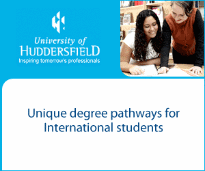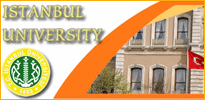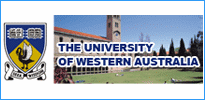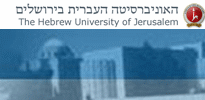Brunei : Brunei Darussalam Education Profile
2015/02/18

The new development in education is the abolishment of the GCE `N' Level Examinations in 2006. From 2004 onwards, students who ass their Penilaian Menengah Bawah (PMB) or Lower Secondary Assessment examination at Form 3 will sit for their GCE `O' Levels at Form 5.
Before, students who obtained less than four credits at PMB could opt to sit for the `N' Level examination that led to technical or vocational courses.
The Ministry of Education has announced that the abolishment of this examination would hopefully lead students to work harder to achieve success. An extra recent development was the merging of religious and general curriculum schools into one unitary system of education.
The objective was to allow schools to share the same building and facilities under one school management, with all separate religious curricula from religious schools streamlined into one curricular component of Islamic Education for an integrated education system.
On January 3, 2004, the Integrated Education System was implemented as a pilot scheme in 37 schools making Islamic Education a compulsory subject taken by all Muslim children.
With the inauguration of the new Education Order 2003, which aims towards an effective, efficient and equitable system of education that is both consonant with MIB - the national philosophy - inclunding the needs of a modern, technological and ICT age. Education development in Brunei Darussalam has come a very long way.
History Of Education
Formal education initial appeared in Brunei in the form of a Malay vernacular school built in Brunei Town (presently known as Bandar Seri Begawan) in the year 1912.
This was followed by the building of similar schools in Muara, Belait and Tutong in the next six years. The Chinese community established their own school in 1916 and the initial nonGovernment English medium primary school was established in Seria in 1931. Limited compulsory attendance for all children was introduced in 1929.
By the outbreak of the war in 1941, Brunei had 32 vernacular (Malay, English, Chinese) schools comprising a total enrolment of 1,746 pupils. Education resumed next the war at the same time as a Brunei Town Government English school was opened in October 1951.
A similar school was opened in Kuala Belait a year later. Within three years, secondary education was introduced.
In 1954 Brunei embarked on a Five-Year Development Plan for education that became the infrastructure of the Ministry of Education.
New schools were planned and teachers were trained and employed. By 1959, there were 15,006 pupils enrolled in the National's schools.
In 1984 a bilingual education policy - dwibahasa - was introduced to ensure that pupils attain a high degree of proficiency in both English and Malay.
In 1985, the National Education System incorporating English and Malay as the media of instruction was implemented.
Free schooling to all citizens and permanent residents of Brunei Darussalam was as well introduced. As a result, the literacy rate in Brunei Darussalam rose from 69% in 1971 to 92.5% in 2001.
Education Policy, Structure And System
The formal school system in Brunei Darussalam adopts the 7-3-2-2 pattern representing seven years of primary education inclunding a year of pre-school, three years of lower secondary, two years of upper secondary or vocational or technical education and two years of pre-tertiary education.
Universiti Brunei Darussalam, Institut Teknologi Brunei, the PAPRSB College of Nursing or one of the technical and vocational training centres, provides post secondary and tertiary education.
Primary Level
Children remain at the Primary level for six years, (Primary 1 to Primary 6). At the end of Primary 6, pupils are required to sit for the Primary Certificate of Examination (PCE/PSR Penilaian Sijil Rendah), a public examination. On passing the PCE, pupils enter Secondary One.
Lower Secondary Level
The duration of Lower Secondary schooling is three years. At the end of the third year, students sit for the Penilaian Menengah Bawah (PMB) or Lower Secondary Assessment examination.
On passing the PMB examination (beginning 2004) students go straight to the Upper Secondary Level to pursue two to three years of upper secondary education leading to the Brunei Cambridge General Certificate of Education (GCE `O' Level) examination.
(The GCE `N' Level examinations were before offered to less academically inclined students would be abolished in 2006).
Upper Secondary Level
At the Upper Secondary level, students are channeled into the Science, Arts or Technical stream. At the end of Secondary 5, academic achievers will sit for the Brunei-Cambridge GCE Ordinary Level (GCE `O' Level) examination.
Those with relevant `O' Level passes may again proceed to do a further two-year Pre-University course leading to the Brunei-Cambridge Advance Level Certificate of Education examination (GCE `A' Level).
They may again decide to opt for employment, undertake training programmes at the various technical and vocational colleges in the country or complete their tertiary education either at Universiti Brunei Darussalam or abroad.
Statistic of government school, students and teachers, 2004
• Number of Government Pre-Primary & Primary Schools throughout the country in
2004 (May): 126
• Number of Government Pre-Primary & Primary Schools by District: Brunei-Muara
63; Tutong 32; Belait 18; Temburong 13
• Number of Government Arabic Schools throughout the country in 2004: 6
• Number of Government Arabic School Students throughout the country in 2004:
1743
• Number of Government Pre-Primary & Primary Students throughout the country in
2004 (May): 32,956
• Number of Government Pre-Primary & Primary School Teachers throughout the
country in 2004 (May): 2,510
• Number of Government Secondary Schools & Colleges throughout the country in
2004: 28
• Number of Government Secondary School & College Students throughout the
country in 2004: 32,182
• Number of Government Secondary & College Teachers throughout the country in
2004: 2,897
Non-Government Schools
There are 80 private schools in Brunei offering nursery, primary and secondary education in Brunei Darussalam.
The role of these non-Government schools is to reduce reliance on the Government to provide education for the children of the country and as well offer parents choices as to where they would prefer their children to be educated.
The Government provides an education allowance of B$120.00 per month for citizens and permanent residents who are Government employees.
Statistics Of Non- Government Schools & Students In 2004
• Number of non-Government Nursery, Pre-Primary, Primary & Secondary Schools
throughout the country in 2004: 80
• Number of non-Government Nursery Schools by District in 2004: Brunei-Muara
15; Belait 4;Tutong 0 Temburong 1
• Number of non-Government Pre-Primary & Primary Schools by District: Brunei-
Muara 33; Belait 5; Tutong 7; Temburong 1
• Number of non-Government Primary & Secondary Schools (incl. International
Schools) by District in 2004: Brunei-Muara 7; Belait 7; Tutong 0; Temburong 0
• Number of Students registered in non-Government Nursery, Pre-Primary, Primary
& Secondary Schools throughout the country in 2004: 31,035
• Number of Students registered in non-Government Nursery, Pre-Primary, Primary
& Secondary Schools (incl. International Schools) by District in 2004: Brunei-
Muara 22,147; Belait 6,305; Tutong 2,436; Temburong 147
Technical And Vocational Schools And Centres
Brunei has a lot of education and training institutions that offer a wide range of full-time programmes at certificate level) for the technically inclined. In 2003, 1,063 students registered for Higher National Diploma and certificate courses while 3,878 registered for the National Diploma courses.
The number of teaching staff at the various Vocational and Technical institutions for 2004 is 830, out of whom 342 or 41% are female. Expatriate teachers constitute 19% of the total VTE teaching staff.
The following arc the centres offering VTE courses. They include:
Nakhoda Ragam Vocational School
Trade level programmes offered include Bricklaying and Concreting, Carpentry and Joinery, Electrical, Electronics, Furniture and Cabinet Making, Painting and Decorating, Plumbing, Pipefitting, Dressmaking and Tailoring.
Sultan Bolkiah Vocational School
Programmes offered are Clerical Studies (Account Clerk, Computer Clerk, and General Office Clerk), Dressmaking and Tailoring, Machining, Motor Vehicle Mechanic, Refrigeration and Air-Conditioning, Vehicle Body Engineering, Welding and Fabrication.
The Mechanical Training Centre
Programmes offered are operation, maintenance and repair of heavy construction equipment.
Sultan Saiful Rijal Technical College
The National Diploma courses offered include Aircraft Engineering, Automotive Engineering, Business & Finance, Computer Studies, Construction, Electronic & Communication Engineering, Electrical and Electronic Engineering, Property Management, Secretarial Studies, Geomatics, Hotel & Catering Management, Travel & Tourism Services and Library Management. The college as well offers Pre-National Diploma courses and Trade Level Programmes.
In 1996, there was a joint apprenticeship program between Royal Brunei Catering Sdn Bhd and the college, which resulted in over 41 graduates.
In 1999, an extra apprenticeship training program in professional Cookery and Service produced an additional seven graduates.
The Jefri Bolkiah College Of Engineering
Courses offered are Pre-National Diploma and National Diploma programmes in fields such as Automotive Engineering, Computer Studies and Electrical & Electronic Engineering.
Other National Diploma courses include Marine Engineering, Manufacturing Engineering, Plant Engineering, Refrigeration and Air-conditioning, Building Services Engineering, Welding & Fabrication Engineering and Instrumentation and Control Engineering.
Institut Teknologi Brunei
Higher National Diploma courses offered include Business & Finance, Computer Studies and Electrical and Electronic Engineering.
Since relocating its campus adjacent to Universiti Brunei Darussalam in 1998, the institute has introduced new courses and expanded existing HND courses to included Civil and Mechanical Engineering, Communication and Computer Systems Engineering, and Electrical Power and Building Services Engineering.
A Bachelor's Degree in Civil Engineering under a twinning arrangement with the Queens University of Belfast (QUB) is an extra course of study offered by the Civil Engineering Department.
Brunei Arts And Handicraft Training Centre
Managed by the Ministry of Culture, Youth and Sports, this centre offers courses in silver and brass smithing, woodcarving, cloth weaving, basketry, songkok-making and engraving.
Currently, 90 students are studying at the centre inclunding 43 in weaving, 17 in silver smithing, 10 in engraving, two in brass-smithing and 18 in songkok-making.
Pre-University, Degree And Professional Courses
Laksamana College Of Business
Laksamana College of Business (email: [email protected]/ webpage: www.laksamanacollege.edu.bn), which opened in March 2002, offers Pre-University, Undergraduate Degree and Professional Courses in Brunei.
A initial of its kind in this country, Laksamana College is a joint venture college with Kensington College of Business in London. Offering studies in Accountancy, Business Studies, Law, IT, Travel/Tourism, IELTS and others inclunding certificate, diploma, and pre-university foundation courses for `O' Level holders, this college is an alternative pathway for students wishing to obtain a UK degree. The Brunei Accreditation Council accredits the university foundation and degree courses.
The Brunei Institute Of Geomatics (Large)
The Brunei Institute of Geomatics (BIG) was launched in September 2003. Geomatics is the art, science and technology related to the management of geographically related data.
BIG is an institution that encompasses and represents several professions inclunding land surveyors, hydrographers, land economists, land managers, land valuers, remote sensing scientists, cartographers, photogrammetrists, geographers, urban and rural planners, land valuers, land officers, property and investment managers inclunding estate managers part others.
Disciplines include surveying, mapping, remote sensing, Geographic Data Systems (GIS) and World Positioning System (GPS).
Tertiary Level Institutions
Universiti Brunei Darussalam
In September 2004, Universiti Brunei Darussalam (UBD) held its 16th Convocation where 918 graduates received their degrees, diplomas and certificates.
UBD is the only national university in Brunei Darussalam. Since its establishment 19 years ago, it has successfully produced thousands of graduates and delivered its initial PhD graduate in Mathematics Education in 2004.
In November 2003, UBD signed two agreements for the commencement of medical/health care courses in the Sultanate.
An MoU signed between UBD and St George's Hospital Medical School in London has resulted in the teaching of the UBD Masters of Science Degree in Primary Health Care in early 2004.
This is a three-year part-time Masters Programme for clinicians interested in a career in General Practice.
The arrangement between UBD and the Royal College of General Practitioners, UK for the accreditation of UBD as an Examining Centre for the 'Memebership of the Royal College of General Practitioners (MRCGP)' has seen UBD's Medical Institute being internationally accredited and made an examination centre for the Asean region.
Other ongoing efforts of the university include the establishment of several new research centres such as the Policy Studies Institute and the offering of several new programmes inclunding BA Major in Sociology and Anthropology and BA in English and Language Studies.
By the new academic year of 2005/2006, UBD will be offering three pure science programmes to produce scientists in Integrated Physics, Chemistry and Computer Science.
The Brunei Institute Of Technology (Institut Teknologi Brunei)
The Brunei Institute of Technology (ITB) offers courses such as HND in Business & Finance (Accounting, Management, and Banking), Computing & Data Systems, Communication and Computer Systems Engineering, Electrical Power and Building Services Engineering, Civil Engineering and Mechanical Engineering.
In 2000, ITB enrolled its initial intake for a degree course, B Eng in Civil Engineering. This degree course is a twinning programme run in collaboration with Queen's University, Belfast, Northern Ireland, and United Kingdom.
In 2003, student enrolment was 770 inclunding overseas students from Islamic Educational Scientific and Cultural Organisation (ISESCO), the Commonwealth and ASEAN with Brunei Government scholarships.
ITB has been awarded for its achievements inclunding the Civil Service Award in the year 2000 and 2002, third place (bronze medal) for its project `Computer Network Design and Installation' and 2nd place (silver medal) for its project `Testing and Measurement for Construction Materials'.
ITB has proposed new degree courses in Computer Networking, Networking Engineering and Finance & Banking and an HND course in the field of Tourism services.
Maktab Jururawat Pengiran Anak Puteri Rashidah Sa'adatul Bolkiah
(The Paprsb Nursing College)
The Pengiran Anak Puteri Rashidah Sa'adatul Bolkiah (PAPRSB) College of Nursing is 18 years old.
A tertiary nursing educational institution, it provides Pre Registration Diploma in Nursing Courses, Diploma in Nursing (Conversion), Diploma in Midwifery and Advanced Diploma Nursing courses for registered nurses inclunding 10 specialised advanced courses inclunding accident and emergency, critical care, operating theatre, community health, paediatric, otorhinolaryngology (ORL) and chief and neck, therapeutic nursing and midwifery.
The college launched its Diploma in Mental Health Nursing in 2004 where students received clinical placement for two weeks at the Woodbridge Mental Institute, Singapore.
Since its establishment, some 895 students have obtained the Diploma in Nursing whilst 210 Registered Nurses have been awarded various Advanced Nursing Diplomas.
Currently there are students studying for the Diploma in Nursing while there arc 78 Registered Nurses studying various courses in the advanced nursing programme.
The College offers its students a lot of opportunities to study for degrees and other advanced courses abroad.
In 2003, the Board of Management of the College of Nursing approved a scheme for students who completed their Diploma in Nursing to continue their studies in various advanced courses.
The initial 23 graduates selected have completed this scheme and have been awarded a double diploma in the 10th convocation in March 2004.
Other Schools And Appropriate Projects
Institut Tahfiz Al-Quran
Institut Tahfiz Al-Quran Sultan Haji Hassanal Bolkiah is a learning institution that combines memorising the AI-Quran with the learning of Quranic knowledge and other academic subjects.
Currently, 209 students inclunding 100 females are enrolled in the school. To date, 44 students have completed memorising the 30 juzuk of Al-Quran of which seven of them have been confirmed as hafiz/hafizah by the Tasmi' Higher Committee.
The Institute, located in Kampong Temasek, Jalan Tutong, has shown its succcess in producing Bruneian students who are successful in both their academic studies inclunding Hafiz Al-Quran (one who is able to memorise Al-Quran).
To date 24 of its students have continued their higher studies at Universiti Brunei Darussalam inclunding overseas in Mahad Qiraat Al-Azhar, Egypt, Amman Jordan, International University, Malaysia and Cardiff University Wales, United Kingdom.
They are studying for their initial degree in several fields inclunding Islamic Studies, Syariah, Law and Architectural Engineering.
Kuala Belalong Field Studies Centre
Kuala Belalong Field Studies Centre in Temburong was built in 1991 with the aim of carrying out joint research with the Royal Geographical Society of London to provide baseline data for research at the Centre on tropical rain forests.
As it is in close proximity to the National Forest Reserve, the Centre is popular with researchers inclunding schools and others, particularly nature lovers from within the country and outside Brunei.
Data And Communication Technology (ICT)
In 1984, Brunei Shell donated BBC computers to some selected Government secondary schools. These computers were used in computer appreciation clubs.
In 1986, Awang Semaun Secondary School became the initial school to introduce computer studies as an optional subject at the upper secondary level.
Students were prepared for `0' level computer studies in Brunei Cambridge General Certificate of Education (BCGCE).
Since 1991, computer studies have been introduced as an optional subject to lower and upper Government secondary schools.
In 1997, the Ministry of Education introduced the Educational Data System (EIS) as an initiative developed to replace a PC-based Educational Statistic System. By early 2000, the Department of Planning, Development and Research provided Internet and e-mail services to selected senior officers using existing EIS infrastructure and equipment.
E-Mail service was as well provided to all principals, headmasters and headmistresses in Government schools and senior officers.
In 1999, the Ministry initiated and implemented the Primary School Computer Project in selected Government primary schools.
In the initial phase of this computer project, multimedia PCs with headphones, microphones and speakers were supplied to 50 selected primary schools.
Each school was as well provided with a colour printer, a hub for networking, furniture, carpet, security grilles, power sockets and air conditioners.
A total of 100 teachers (two from each school) participated in "Basic ICT Skills" conducted by Sultan Hassanal Bolkiah Istitute of Education (SHBIE), Sultan Saiful Rijal Technical College (MTSSR) and Jefri Bolkiah College of Engineering (MKJB).
Fifty teachers as well underwent a course "Integration of ICT Use in the Primary School Curriculum" organised and conducted by SHBIE.
Use of ICT in education initially focused on core subjects like Bahasa Melayu, English, Mathematics and Science.
Phase Two computer project was initiated in 2001 whereby a total of 72 Government primary and 26 secondary schools were provided with 53 multimedia PCs.
All these PCs were wirelessly peer-to-peer connected and came long with a colour printer, a hub for networking, a laser printer, a modem and a CD-Read and Write Drive, some educational software, furniture, carpet, security grilles, power sockets, air conditioners and curtains.
A total 146 Government primary teachers attended a training course in "Basic ICT Skills" conducted by ITB and MKJB.
All Government secondary principals and deputy principals as well attended a course in "Microsoft Excel and Microsoft PowerPoint" in SEAMEO VOCTECH.
They as well visited Jerudong International School to have a closer look at how ICT was used in teaching and learning. 10 Primary teachers attended a "Multimedia Production" course at SEAM1EO VOCTECH.
Phase Two computer project as well saw the provision of training development continuity in addition to the above course, notably in the Project "Integration ICT Across the School Curriculum in the Government Primary and Secondary Schools".
A total 265 primary and secondary school teachers and five officers from the Department of Curriculum Development attended a 16-week professional staff development course in July 2003.
In 2002, through the Department of Economic Planning & Development, the Prime Minister's Office's "Short Term Economic Recovery Project", Project "Internet for Schools" was conceptualised and implemented by the Department of ICT.
The end of 2002 saw a "Design & Technology Project" being implemented in four primary and secondary schools in Brunei Darussalam.
This project was a joint initiative between the Ministry of Education (MoE) and BAE Systems (UK). Maktab Sains Paduka Seri Begawan Sultan (MSPSBS); Sekolah Menengah Pehin Dato Seri Maharaja (SMPDSM); Sekolah Rendah Dato Marsal (SRDM) and Sekolah Rendah Rimba (SRR) were selected to participate in this initiative.
A total of 80 teachers and officers from the Department of Schools, Department of ICT, and Department of Curriculum Development attended a five day ICT and D & T training course (from 23 - 29 October 2002). The course was arranged by BAE Systems (UK) and conducted by experts from the UK.
The Ministry of Education through the Government has spent a total of B$20.7 million in the implementation of ICT initiatives.
Today, almost all Government primary and secondary schools are equipped with computer hardware, software resources, ICT competency training for teachers and administrators and training courses for teachers and officers in the integration of ICT across the school curriculum. Any minute at this time, all schools will be connected to the Internet and the World Wide Web.
It is estimated that with e-Government initiatives such as the e-Education flagship, an estimated total of B$145 million would be spent under the Ministry of Education's five pillars of strategic ICT programmes by 2005.
They are: Edunet, eLearning, Education Data System (EIS), Digital Library, and Human Capacity Building. Of this, 15% has by presently been spent in 2003.
- Brunei News
-
- AFGHANISTAN: UNWTO: International tourism – strongest half-year results since 2010
- BRUNEI : The next chapter for the Trans-Pacific Partnership
- AFGHANISTAN: Higher earning Why a university degree is worth more in some countries than others
- AFGHANISTAN: Global growth will be disappointing in 2016: IMF's Lagarde
- BRUNEI : Brunei Darussalam eyes Pacific trade benefits
- BRUNEI : Brunei Darussalam looks to work around LNG challenges
- Trending Articles
-
- SOUTH AFRICA: Nigeria and South Africa emerge from recession
- UZBEKISTAN: Former deputy PM named Uzbekistan Airways head
- BAHRAIN: Bahrain issues new rules to encourage fintech growth
- ISRAEL: PM Netanyahu leaves on historic visit to Latin America
- BAHRAIN: Aluminium Bahrain’s Line 6 Expansion Achieves 25 Percent Completion
- ARUBA: Director of Tourism Turks and Caicos after Irma: Tourism, visitors, hotels current status




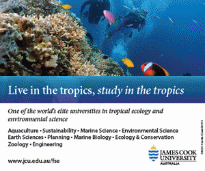

.gif?1356023993)
